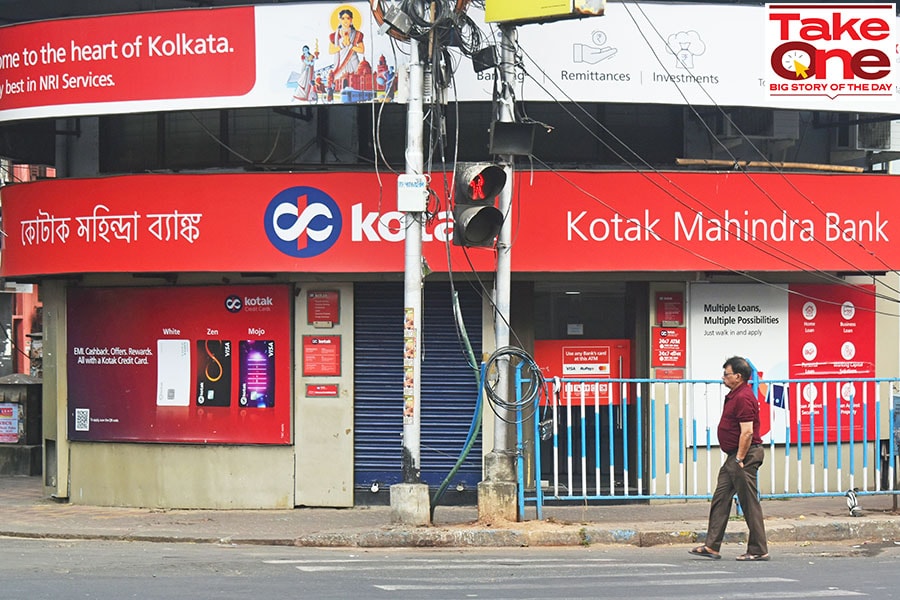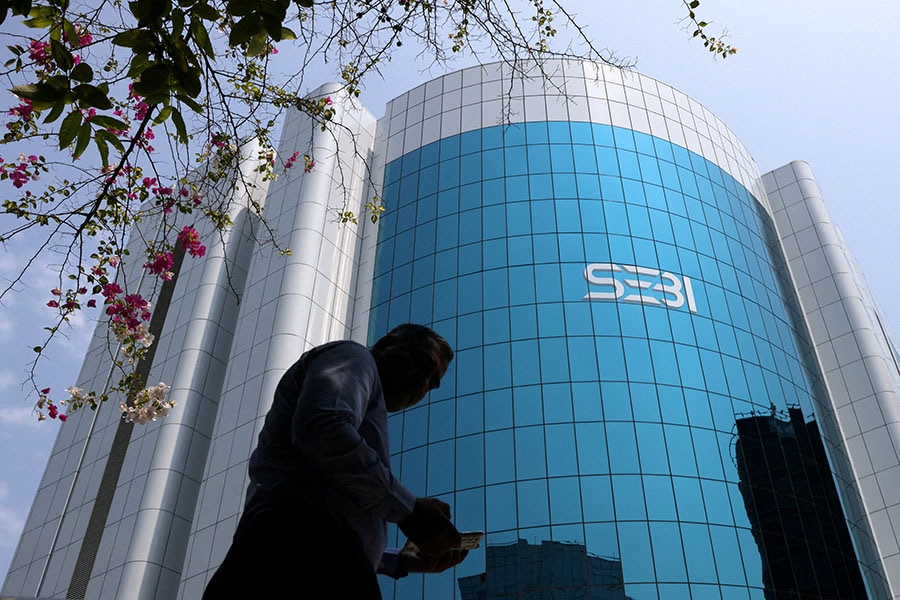Adani-Hindenburg Sebi probe gets gripping with Kotak twist
Sebi probe into 2023 Hindenburg Research's report, which led to massive sell-off in Adani stocks, gets a major plot twist with new Indian corporate being named in the tussle
 Kotak Mahindra Bank in Kolkata, India.
Image: Sudipta Das/NurPhoto via Getty Images
Kotak Mahindra Bank in Kolkata, India.
Image: Sudipta Das/NurPhoto via Getty Images
In what Hindenburg Research calls “the largest con in corporate history”, the plot got murkier on Tuesday with the US-based research firm accusing another Indian corporate of being part of the nexus. The firm claims that the Securities and Exchange Board of India (Sebi) in its 46-page show cause notice outlining suspected violations of Indian regulations, failed to name Kotak Mahindra Bank (KMB) and, instead, masked the ‘Kotak’ name with the acronym ‘KMIL’.
Hindenburg says that KMB, one of India’s largest banks and brokerage firms founded by Uday Kotak, created and oversaw an offshore fund structure. This fund was used by an investor partner of Hindenburg to bet against Adani or short-selling Adani stocks. It accuses Sebi of protecting powerful Indian businessman.
“Uday Kotak, founder of the bank, personally led Sebi’s 2017 Committee on Corporate Governance. We suspect Sebi’s lack of mention of Kotak or any other Kotak board member may be meant to protect yet another powerful Indian businessman from the prospect of scrutiny, a role Sebi seems to embrace,” Hindenburg adds.
Short-selling of Adani stocks and Kotak fund
Sebi’s show cause notice to Hindenburg accused it of short-selling Adani stocks before making its investigative report public on January 25, 2023. The report, which raised questions about the financial health of the Adani Group, coincided with the follow-on-offer (FPO) of Adani Enterprises. The Hindenburg report triggered a massive sell-off in all Adani listed stocks, consequently leading to a withdrawal of its FPO worth Rs 20,000 crore, a day after it had successfully closed the offer.
Sebi’s initial analysis of trading data showed that before the release of the Hindenburg report, one entity named K India Opportunities Fund (KIOF Class F) opened a trading account. The fund started trading in Adani Enterprises stocks (only in the futures segment at NSE) before publication of the report and then squared-off its entire position once the Hindenburg report was made public. According to Sebi’s calculations, KIOF made a profit of Rs 183.24 crore or $22.25 million in this specific trade.


















